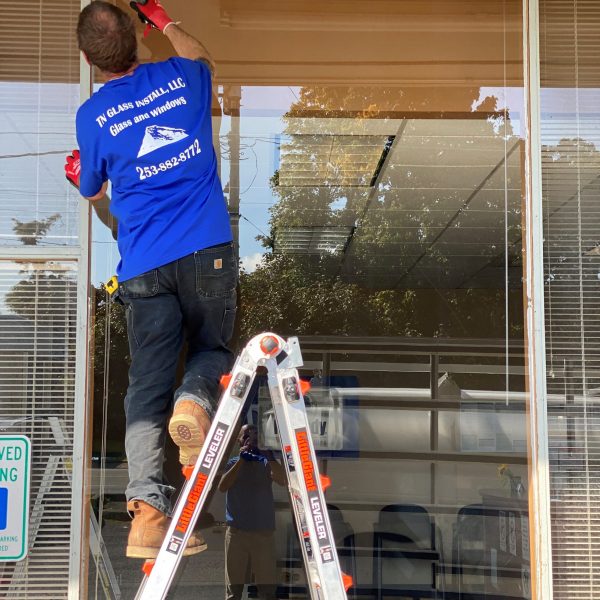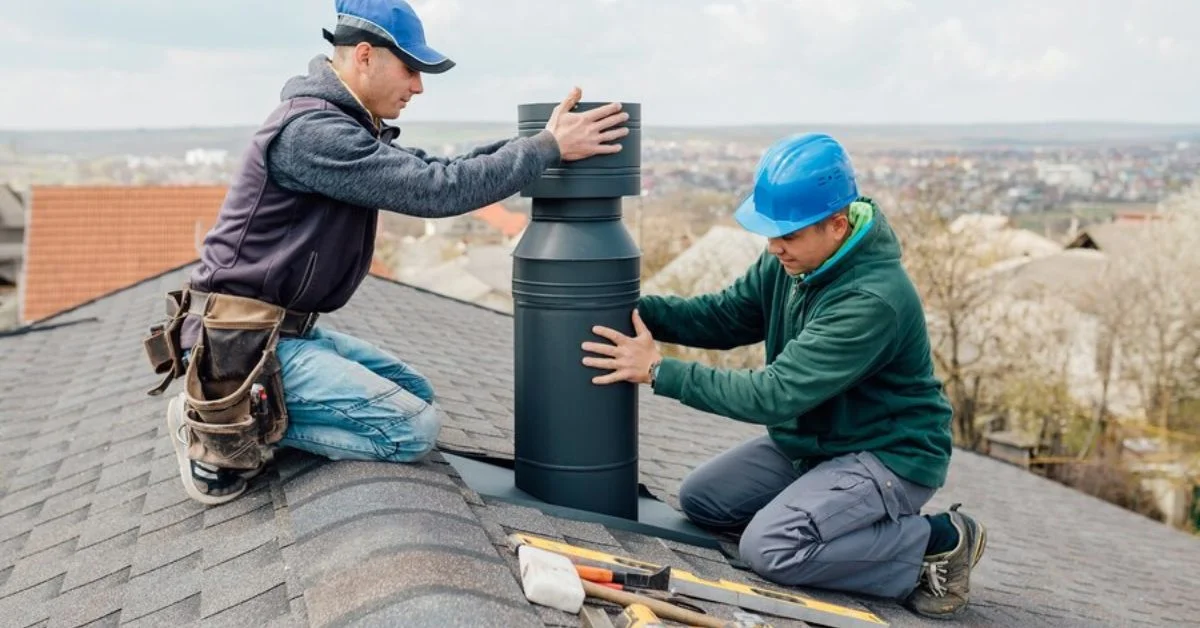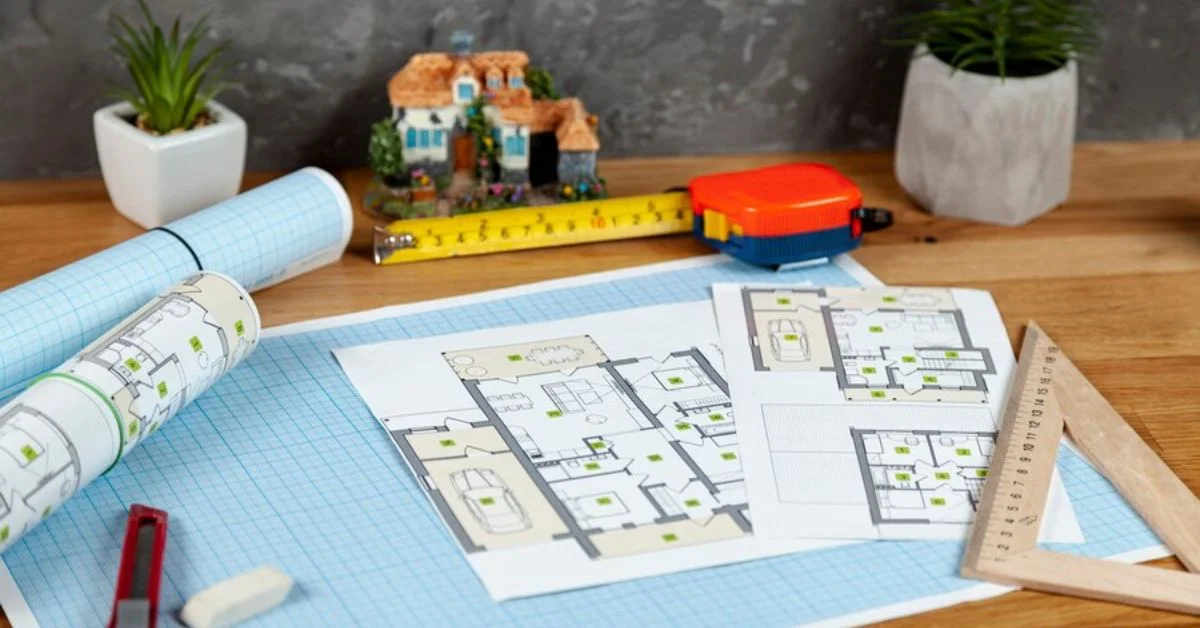HOME IMPROVEMENT
Exploring the Benefits of Energy-Efficient Windows for Your Home

Introduction
In today’s world, energy efficiency is a top priority for homeowners looking to reduce their environmental footprint and save on utility bills. One of the most effective ways to enhance a home’s energy efficiency is through the installation of energy-efficient windows. These windows not only provide excellent insulation but also improve comfort and aesthetics. This article explores the various benefits of energy-efficient windows and why they are a smart investment for any home.
What Are Energy-Efficient Windows?
Energy-efficient windows are designed to prevent heated or cooled air from escaping your home. They achieve this through advanced technologies and materials that reduce energy loss, improve insulation, and regulate indoor temperatures. Key features of energy-efficient windows include:
- Double or Triple Glazing: Multiple panes of glass separated by a spacer and filled with insulating gas, such as argon or krypton.
- Low-E Coatings: Thin, transparent coatings applied to the glass to reflect heat and UV rays while allowing natural light to enter.
- Warm Edge Spacers: Materials used to separate glass panes that reduce heat transfer at the edges.
- Insulated Frames: Frames made from materials like vinyl, fiberglass, or wood with insulation properties that prevent thermal bridging.
Benefits of Energy-Efficient Windows
1. Lower Energy Bills
One of the most immediate and noticeable benefits of energy-efficient windows is the reduction in energy bills. By minimizing heat loss during the winter and heat gain during the summer, these windows help maintain a consistent indoor temperature. This reduces the need for heating and cooling systems to work overtime, leading to significant energy savings.
2. Enhanced Comfort
Energy-efficient windows contribute to a more comfortable living environment. By maintaining consistent indoor temperatures, they eliminate cold drafts and reduce hot spots near windows. This creates a more stable and pleasant indoor climate year-round.
3. Reduced Environmental Impact
Lower energy consumption not only saves money but also reduces your home’s environmental impact. By using less energy for heating and cooling, you contribute to the reduction of greenhouse gas emissions. This makes energy-efficient windows an eco-friendly choice for environmentally conscious homeowners.
4. Improved Indoor Air Quality
Energy-efficient windows often feature advanced sealing techniques that prevent air leaks. This helps keep out pollutants, allergens, and moisture, improving indoor air quality. By reducing the infiltration of outdoor air, these windows help maintain a healthier and more comfortable indoor environment.
5. UV Protection
Many energy-efficient windows come with Low-E coatings that block harmful UV rays. This protects your furniture, flooring, and artwork from fading and damage caused by prolonged exposure to sunlight. UV protection helps preserve the longevity and appearance of your interior decor.
6. Noise Reduction
The multiple layers of glass and insulating gas in energy-efficient windows also provide soundproofing benefits. They can significantly reduce outside noise, creating a quieter and more peaceful indoor environment. This is particularly beneficial for homes located in busy or noisy areas.
7. Increased Home Value
Investing in energy-efficient windows can increase the value of your home. Prospective buyers are often attracted to homes with energy-efficient upgrades, and high-quality windows are a significant selling point. They enhance curb appeal and demonstrate that the property is well-maintained and modern.
Choosing the Right Energy-Efficient Windows
When selecting energy-efficient windows, consider the following factors to ensure you make the best choice for your home:
1. Window Ratings and Certifications
Look for windows with ratings and certifications from reputable organizations. The National Fenestration Rating Council (NFRC) provides ratings for U-factor (insulation), Solar Heat Gain Coefficient (SHGC), and Visible Transmittance (VT). The ENERGY STAR label indicates that the window meets strict energy efficiency guidelines set by the U.S. Environmental Protection Agency.
2. Climate Considerations
Choose windows that are suitable for your climate. In colder climates, windows with a low U-factor are essential to minimize heat loss. In warmer climates, a low SHGC is important to reduce heat gain. Some windows are designed to perform well in both extreme heat and cold, providing year-round energy efficiency.
3. Frame Materials
The frame material plays a significant role in the overall energy efficiency of the window. Common materials include:
- Vinyl: Low-maintenance and energy-efficient with good insulation properties.
- Wood: Excellent insulator but requires regular maintenance to prevent rot and warping.
- Fiberglass: Durable and energy-efficient, resistant to temperature changes and moisture.
- Aluminum: Strong and lightweight but requires a thermal break to improve energy efficiency.
4. Glazing Options
Consider the type of glazing that best suits your needs. Double glazing is standard for energy-efficient windows, but triple glazing offers even better insulation and soundproofing. Also, look for windows with Low-E coatings and inert gas fills for enhanced performance.
5. Professional Installation
Proper installation is crucial for maximizing the benefits of energy-efficient windows. Poor installation can lead to air leaks, moisture problems, and reduced energy savings. Hire a professional installer with experience and good reviews to ensure your windows are installed correctly.
Maintenance Tips for Energy-Efficient Windows
To keep your energy-efficient windows performing at their best, follow these maintenance tips:
1. Regular Cleaning
Clean the glass and frames regularly to maintain clarity and functionality. Use a mild, non-abrasive cleaner and a soft cloth or sponge to avoid scratching the glass or damaging the frames.
2. Inspect Seals and Weatherstripping
Check the seals and weatherstripping around your windows periodically for signs of wear or damage. Replace any worn or damaged components to maintain the window’s energy efficiency and prevent air leaks.
3. Monitor for Condensation
Condensation between the panes of double or triple-glazed windows indicates a seal failure. If you notice condensation, contact a professional to inspect and repair the window. Prompt attention can prevent further damage and maintain the window’s insulation properties.
4. Lubricate Moving Parts
If your windows have moving parts, such as hinges or tracks, lubricate them periodically to ensure smooth operation. Use a silicone-based lubricant to avoid attracting dust and dirt.
5. Protect from Physical Damage
Avoid applying excessive force when opening or closing windows, and keep sharp objects away from the glass. Protect your windows from physical damage to extend their lifespan and maintain their energy efficiency.
For homeowners looking to upgrade their windows, companies like TN Glass Install provide expert services and products to help you achieve a more efficient and comfortable home. Embrace the benefits of energy-efficient windows and transform your living space into a modern, eco-friendly haven.
Conclusion
Energy-efficient windows are a valuable investment that offers numerous benefits, from lower energy bills and enhanced comfort to reduced environmental impact and increased home value. By choosing the right windows for your climate, selecting high-quality materials, and ensuring proper installation, you can enjoy the advantages of energy-efficient windows for years to come.
HOME IMPROVEMENT
Navigating the Market for Used Spray Rigs: A Comprehensive Guide

Used spray rigs can be an excellent investment for businesses looking to expand their capabilities in insulation, roofing, or specialty coatings without the hefty price tag of new equipment. We will explore everything from the benefits of opting for used equipment to the critical considerations one must make to ensure a wise purchase.
The Appeal of Used Spray Rigs
Opting for used spray rigs offers several attractive benefits. The most obvious is cost savings. Used rigs can be significantly cheaper than their new counterparts, making them an appealing option for startups or businesses looking to minimize capital expenditures. Additionally, the depreciation on used equipment is considerably less steep, which means it retains more of its value should you decide to sell it later. Purchasing used equipment also allows quicker acquisition since you typically bypass the manufacturing lead times associated with new equipment orders.
Evaluating the Condition of Used Spray Rigs
When considering a used spray rig, the most critical factor is the condition of the equipment. It’s essential to thoroughly inspect the rig, ideally with the help of a knowledgeable technician. Check for signs of wear and tear, potential damage, and the overall operational status of the machine. Assess the condition of key components like the spray guns, hoses, and the proportioner. Ensure the equipment has been well-maintained and inquire about any recent repairs or part replacements. A well-maintained used rig can offer reliability close to that of a new one at a fraction of the cost.
Where to Find Used Spray Rigs
Finding quality used spray rigs requires knowing where to look. One of the best places to start is specialty equipment resellers focusing on selling used construction and industrial machinery. These vendors often understand the equipment well and can provide a history of the rig’s usage and maintenance. Online marketplaces and auctions are another avenue, though they may require more diligence to ensure the equipment meets your standards. Networking with industry contacts can also lead to great deals on used spray rigs for sale.
Key Features to Check Before Purchase
Before purchasing a used spray rig, several key features require close inspection to ensure they meet the operational demands of your projects. The proportioner should function efficiently at the correct temperatures and pressures. Hoses should be free of cracks and leaks, while spray guns should deliver a consistent spray pattern. Check the electrical and mechanical systems to ensure they are in good working order, and pay attention to the rig’s trailer or chassis, which should be structurally sound and rust-free.
The Importance of a Reliable Seller
The reliability of the seller is crucial when purchasing used equipment. A reputable seller should provide transparent information about the rig’s history, including its age, usage, maintenance records, and any significant repairs. They should be willing to allow a thorough inspection of the rig and possibly even a demonstration to prove its functionality. Buying from established and respected sellers can decrease the likelihood of encountering issues with the equipment after purchase.
Potential Costs of Refurbishment
While purchasing a used spray rig can save money initially, it’s important to consider potential refurbishment costs. Depending on the rig’s condition, you might need to invest in repairs or upgrades soon after purchase. Factor in the costs of replacing hoses, repairing spray guns, or updating the proportioning system to ensure the rig meets your needs. Setting aside a budget for these potential expenses will help determine the cost of purchasing a used rig.
Warranty and Support Issues
Unlike new equipment, used spray rigs often have limited or no warranty. Any malfunctions or breakdowns will likely be your responsibility to fix, potentially adding to the overall cost of ownership. It’s important to discuss support options with the seller, whether they offer any guarantees or after-sale support, and if not, plan for how you will manage repairs and maintenance. Having a reliable service technician or a good relationship with a local equipment repair shop can mitigate some of these risks.
Financing Options for Used Spray Rigs
Financing used equipment can be more challenging than financing new equipment due to the increased risk perceived by lenders. However, many equipment financing companies offer loans or leases for used equipment purchases. These financing options can help spread the cost of the rig over time, making it more manageable. Shop for financing options to find terms that best suit your business’s cash flow and financial status.
Making the Decision: New vs. Used Spray Rigs
Deciding whether to invest in a new or used spray rig often comes down to comparing the immediate cost savings of used equipment against the long-term benefits of new. Consider factors such as the expected lifespan of the rig, potential downtime due to repairs, and the importance of technological advancements included in newer models. For some businesses, the latest technology and the peace of mind of a warranty are worth the extra investment. For others, the cost savings of a used rig align better with their financial strategy.
Investing in a used spray rig can be a smart financial decision for many businesses, offering significant savings and immediate availability. However, careful consideration of the rig’s condition, potential additional costs, and the seller’s reliability is required. By conducting thorough research and inspections, negotiating wisely, and preparing for additional maintenance investments, businesses can greatly benefit from the advantages of used spray rigs while minimizing the risks.
HOME IMPROVEMENT
Comprehensive Guide to Chimney Cap Maintenance and Repair

Chimney caps are vital in maintaining the safety and efficiency of your home’s heating system. These caps are designed to cover the top of your chimney flue. They prevent animals, debris, and water from entering the chimney, which can cause blockages or damage. Additionally, they help prevent sparks or embers from escaping the chimney and potentially starting a fire on your roof or nearby combustible materials. Regular maintenance of your chimney cap is crucial as it helps avoid costly repairs and extends the life of your chimney. For residents experiencing issues with their chimney caps, seeking professional chimney cap repair in Portland ensures that all repairs are conducted with high standards and quality materials.
Identifying Common Issues with Chimney Caps
Common issues with chimney caps include rusting, corrosion, and physical damage such as dents or dislodgement. Rust and corrosion can occur due to exposure to the elements, especially in areas with high humidity or coastal regions where salt is present. Physical damage can occur from severe weather conditions such as high winds or heavy snowfall. It’s also common for chimney caps to become loose over time, which can compromise their functionality. Regular inspections can help identify these issues early, preventing further damage to your chimney system.
Materials Used in Chimney Caps: Pros and Cons
Chimney caps are typically made from metals like galvanized steel, stainless steel, or copper. Galvanized steel is cost-effective but prone to rust over time, diminishing its durability. Stainless steel offers better resistance to rust and corrosion, making it a more reliable choice for chimney caps, although it is more expensive. Copper is the most durable and aesthetically pleasing option, but it comes at a higher cost and requires regular polishing to maintain its shiny appearance. Choosing the right material depends on your budget, the climate of your area, and how often you are willing to perform maintenance.
Step-by-Step Guide to Inspecting a Chimney Cap
Inspecting your chimney cap is a straightforward process that you can do yourself or with the help of a professional. Begin by visually examining the cap from the ground to see if there are any obvious signs of damage or wear. Use binoculars if necessary. If it looks intact, use a ladder to get a closer view. Check for rust and corrosion, and ensure the cap is securely attached to the flue. Look inside the flue to see if any blockage is visible from the top. If you are uncomfortable performing this inspection independently, consider hiring a professional to ensure it is done safely.
Tools and Materials Needed for DIY Chimney Cap Repair
For DIY chimney cap repair, you will need basic tools and materials, including a hammer, pliers, wire brush, and appropriate sealants or paints, depending on the material of your cap. For example, if you have a galvanized steel cap, you might need rust-inhibiting paint to treat areas where rust has formed. Stainless steel caps only require cleaning and tightening, whereas copper caps need polishing and lacquering to restore appearance. Always ensure you have the correct safety gear, such as gloves, goggles, and a sturdy ladder.
Professional Repair Services: When to Call in the Pros
While many aspects of chimney cap maintenance can be handled on a DIY basis, there are times when it’s advisable to call in professionals. This is particularly true if the damage to your chimney cap is extensive or if the cap requires complete replacement. Professionals can also help in cases where the chimney has been damaged or if there are signs of blockage you cannot clear yourself. Hiring a professional can ensure that all parts of your chimney system are in optimal working condition and safe to use.
Long-Term Maintenance Strategies for Chimney Caps
Implement a routine maintenance schedule to ensure the longevity and effectiveness of your chimney cap. This includes regular inspections and immediate repairs of any small issues before they become major problems. Consider treating metal chimney caps with rust inhibitors or applying waterproof sealants to prevent water damage. It is also advisable to clean your chimney and cap annually to remove soot, debris, and creosote buildup, which can affect the performance of your heating system and pose a fire hazard.
The Role of Chimney Caps in Home Safety
Ultimately, chimney caps play a crucial role in maintaining your home’s safety. They prevent the ingress of rainwater, which can lead to structural damage and mold growth within your chimney. They also block animals from nesting in the chimney, which can cause blockages and hazardous conditions. Chimney caps reduce the fire risk by keeping embers contained, protecting your home and its occupants. Regular maintenance and prompt repair of your chimney cap are essential to ensure your home remains safe and your heating system operates efficiently throughout the year.
HOME IMPROVEMENT
Designing Functional Spaces: Exploring Carriage House Floor Plans

Carriage house floor plans are detailed blueprints that outline the layout and design of carriage houses, versatile structures that serve various purposes such as garages, guesthouses, studios, or rental units. These floor plans provide essential guidance for architects, builders, and homeowners to visualize and execute the construction of carriage houses according to specific needs and preferences. Homeowners can maximize their creativity and find the perfect layout by taking the time to explore different carriage house floor plans.
Types of Carriage House Floor Plans
Several types of carriage house floor plans are available, each catering to different requirements and lifestyles. Traditional floor plans typically feature a two-story design, with a garage on the ground floor and living quarters or storage space above. Modern floor plans may include single-story or multi-level layouts with open-concept living spaces, gourmet kitchens, and luxurious amenities. Additionally, some floor plans incorporate additional features such as balconies, decks, or rooftop gardens to maximize outdoor living space.
Layout and Space Utilization
A carriage house floor plan layout is crucial for maximizing space utilization and functionality. Efficient floor plans prioritize open flow between rooms, with designated living, dining, cooking, and sleeping areas. Ample storage space, including closets, cabinets, and built-in shelving, helps minimize clutter and maintain organization. Flexibility in design allows for customization according to individual needs, whether creating a home office, a fitness area, or a rental unit for supplemental income.
Architectural Styles and Aesthetic Appeal
Carriage house floor plans come in various architectural styles, from traditional to contemporary, to suit different tastes and preferences. Classic styles may feature elements such as pitched roofs, dormer windows, and decorative trim, evoking a sense of nostalgia and charm. On the other hand, modern styles may incorporate clean lines, minimalist design, and sleek finishes for a more contemporary look and feel. By selecting the right architectural style, homeowners can enhance their carriage house’s aesthetic appeal and overall ambiance.
Integration with Main Residence
Carriage house floor plans are often designed to complement the architecture and style of the main residence, creating a cohesive and harmonious aesthetic. Integration with the main residence may involve matching exterior finishes, coordinating rooflines, and maintaining consistent architectural details. Additionally, the thoughtful placement of the carriage house on the property ensures privacy and visual harmony while maximizing views and natural light. Whether attached or detached, the carriage house should feel like a seamless extension of the main residence, enhancing the property’s overall value and curb appeal.
Accessibility and Universal Design
Accessibility is an essential consideration in carriage house floor plans, ensuring that the space is usable and enjoyable for people of all ages and abilities. Universal design principles may include wider doorways, zero-step entries, lever door handles, and accessible bathrooms with grab bars and roll-in showers. These design elements promote safety, convenience, and independence for homeowners and guests, regardless of mobility limitations. By incorporating universal design principles into carriage house floor plans, homeowners can create inclusive and welcoming spaces that accommodate diverse needs and lifestyles.
Energy Efficiency and Sustainable Design
Carriage house floor plans can incorporate energy-efficient and sustainable design principles to minimize environmental impact and reduce utility costs. This may include high-performance insulation, energy-efficient windows and doors, passive solar design, and renewable energy systems like solar panels or geothermal heating. By optimizing energy efficiency, carriage houses can operate more sustainably and affordably, benefiting both the environment and homeowners’ wallets. Sustainable materials and construction practices also contribute to healthier indoor air quality and long-term durability, ensuring that the carriage house remains a comfortable and environmentally responsible living space for years.
Outdoor Living Spaces and Landscaping
Carriage house floor plans often include outdoor living spaces and landscaping features to enhance the overall functionality and enjoyment of the property. This may include patios, decks, or courtyard gardens for outdoor entertaining, relaxation, and recreation. Thoughtful landscaping with native plants, trees, and shrubs enhances curb appeal and promotes biodiversity, water conservation, and ecological resilience. Homeowners can create inviting and sustainable environments that blur the line between indoor and outdoor living by integrating outdoor living spaces and landscaping into carriage house floor plans.
Carriage house floor plans offer homeowners a flexible and customizable solution for creating additional space on their property. By exploring different types of floor plans, considering layout and space utilization, selecting architectural styles, integrating with the main residence, prioritizing accessibility and universal design, promoting energy efficiency and sustainable design, and incorporating outdoor living spaces and landscaping, homeowners can design carriage houses that meet their unique needs and preferences. With careful planning, attention to detail, and collaboration with architects and builders, carriage house floor plans can transform visions into reality, creating functional, beautiful, and harmonious spaces that enhance the overall value and enjoyment of the property.

 BUSINESS1 year ago
BUSINESS1 year agoExploring the Benefits of Commercial Printing

 HOME IMPROVEMENT12 months ago
HOME IMPROVEMENT12 months agoThe Do’s and Don’ts of Renting Rubbish Bins for Your Next Renovation

 BUSINESS12 months ago
BUSINESS12 months agoBrand Visibility with Imprint Now and Custom Poly Mailers

 HEALTH8 months ago
HEALTH8 months agoThe Surprising Benefits of Weight Loss Peptides You Need to Know

 TECHNOLOGY10 months ago
TECHNOLOGY10 months agoDizipal 608: The Tech Revolution Redefined

 HEALTH8 months ago
HEALTH8 months agoYour Guide to Shedding Pounds in the Digital Age

 HOME IMPROVEMENT8 months ago
HOME IMPROVEMENT8 months agoGet Your Grout to Gleam With These Easy-To-Follow Tips

 HEALTH11 months ago
HEALTH11 months agoHappy Hippo Kratom Reviews: Read Before You Buy!












